Synopsis
Martin Luther King tells the story of Rosa Parks, the ''Bus Boycott'' and how this lead to his rise a civil rights leader.
- Programme: Face to Face
- Episode: Martin Luther King
- Channel: BBC
- Broadcast year: 1961
- History | America, 1713-1975 | The development of the civil rights movement, 1954-60 | The Montgomery Bus Boycott and its impact, 1955-60
Licence: ERA Licence required
UK only
Staff and students of licensed education establishments only
Cannot be adapted
Add Notes
More clips from Face to Face
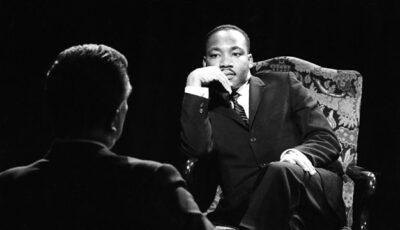
Colour discrimination | Face to Face
Colour discrimination | Face to Face
Martin Luther King recalls his first instance of being discriminated for his race at the age of six.

Fear and leadership | Face to Face
Fear and leadership | Face to Face
Martin Luther King reflects on the difficult times he faced being a leader and symbol of the civil rights movement.

Living in the USA | Face to Face
Living in the USA | Face to Face
Martin Luther King explains why he doesn't move to a less discriminatory country and why it is important that he fights for equality in the US.

Non-violence | Face to Face
Non-violence | Face to Face
Martin Luther King talks about the importance of non-violent protest in the civil rights movement.

Non-violent success | Face to Face
Non-violent success | Face to Face
Martin Luther King speaks to the success of non-violent protest.

Segregation and violence | Face to Face
Segregation and violence | Face to Face
Martin Luther King speaks of his experiences of segregation and violence as a child.

Token integration | Face to Face
Token integration | Face to Face
Martin Luther King reflects on the lawful change he has witnessed with regard to integration.
More resources about Civil rights movements
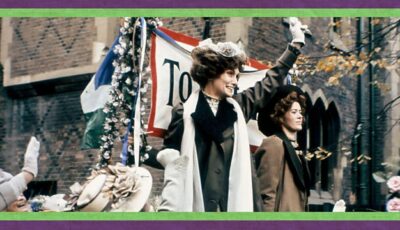
1: The Pankhurts | Shoulder to Shoulder
1: The Pankhurts | Shoulder to Shoulder
1898: Dr and Mrs Pankhurst and their four children are living comfortably in Manchester. However, in that year an event occurs which ...
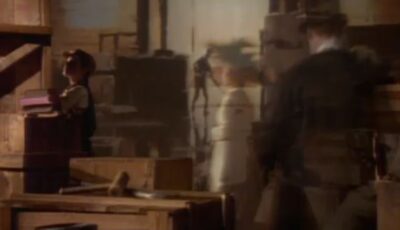
20th Century Wrap: 2: 1910s: Why Didn't Suffragettes Win the Vote? | History File
20th Century Wrap: 2: 1910s: Why Didn't Suffragettes Win the Vote? | History File
This programme investigates the Suffragette movement.

4: Christabel Pankhurst | Shoulder to Shoulder
4: Christabel Pankhurst | Shoulder to Shoulder
Black Friday - 18 November 1910. A violent struggle in Parliament Square between suffragettes and police. But why don't the po...
5: Activists | Icons
5: Activists | Icons
Exploring the achievements of the greatest figures of the 20th century. Examining the lives of Emmeline Pankhurst, Mahatma Gandhi, Helen Keller and Mart...

5: Outrage | Shoulder to Shoulder
5: Outrage | Shoulder to Shoulder
The campaign grows. Suffragettes destroy property, and Emily Wilding Davison becomes a martyr to the cause.

6: Sylvia Pankhurst | Shoulder to Shoulder
6: Sylvia Pankhurst | Shoulder to Shoulder
1914: War is declared, and women still do not have the vote.
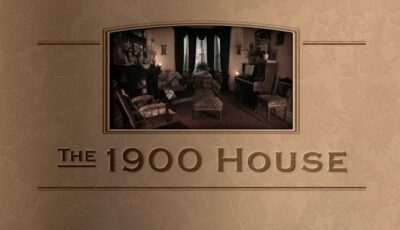
7: Women's Liberation | 1900s House
7: Women's Liberation | 1900s House
The arrival of the maid has given Joyce the freedom to investigate the history of the suffragette movement. But the more she learns about...

Artefact: Nellie Dean's Letter | Michael Wood's Story of England
Artefact: Nellie Dean's Letter | Michael Wood's Story of England
Michael Wood learns about Suffragette Nellie Taylor and her experiences during a London window-smashing camp...

Clare Balding's Secrets of a Suffragette
Clare Balding's Secrets of a Suffragette
In 1913 Suffragette Emily Davison stepped into the path of the King's horse at the Derby. Clare Balding examines the story of Emily,...

Colour discrimination | Face to Face
Colour discrimination | Face to Face
Martin Luther King recalls his first instance of being discriminated for his race at the age of six.
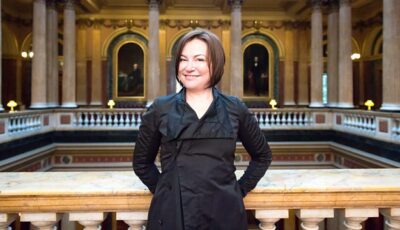
Episode 1 | Suffragettes Forever! The Story of Women and Power
Episode 1 | Suffragettes Forever! The Story of Women and Power
Documentary series presented by Amanda Vickery exploring the origins of the suffragette movement, beginning wi...

Episode 2 | Suffragettes Forever! The Story of Women and Power
Episode 2 | Suffragettes Forever! The Story of Women and Power
Documentary series presented by Amanda Vickery. During Victoria's reign extraordinary women gradually changed ...

Episode 3 | Suffragettes Forever! The Story of Women and Power
Episode 3 | Suffragettes Forever! The Story of Women and Power
Documentary series presented by Amanda Vickery. Vickery explores how the Edwardian suffragette movement became...

Fear and leadership | Face to Face
Fear and leadership | Face to Face
Martin Luther King reflects on the difficult times he faced being a leader and symbol of the civil rights movement.
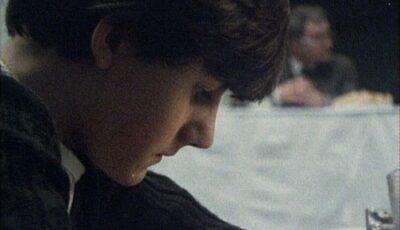
Gaskin
Gaskin
Drama based on the case history of a Liverpool boy, Graham Gaskin, who spent most of his youth in care. Graham Gaskin says it is not just his story - 'It's all the ot...

Living in the USA | Face to Face
Living in the USA | Face to Face
Martin Luther King explains why he doesn't move to a less discriminatory country and why it is important that he fights for equality in the US.
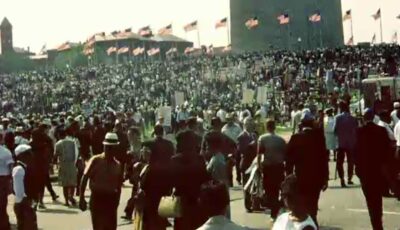
Martin Luther King and the March on Washington
Martin Luther King and the March on Washington
Documentary commemorating the 50th anniversary of Martin Luther King's March on Washington, speaking to the people who organis...
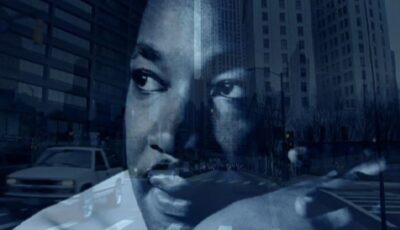
Martin Luther King: American Prophet
Martin Luther King: American Prophet
Since his assassination in 1968, Martin Luther King has become known as a champion of freedom. Oona King goes on a journey through the D...

Non-violence | Face to Face
Non-violence | Face to Face
Martin Luther King talks about the importance of non-violent protest in the civil rights movement.

Non-violent success | Face to Face
Non-violent success | Face to Face
Martin Luther King speaks to the success of non-violent protest.
